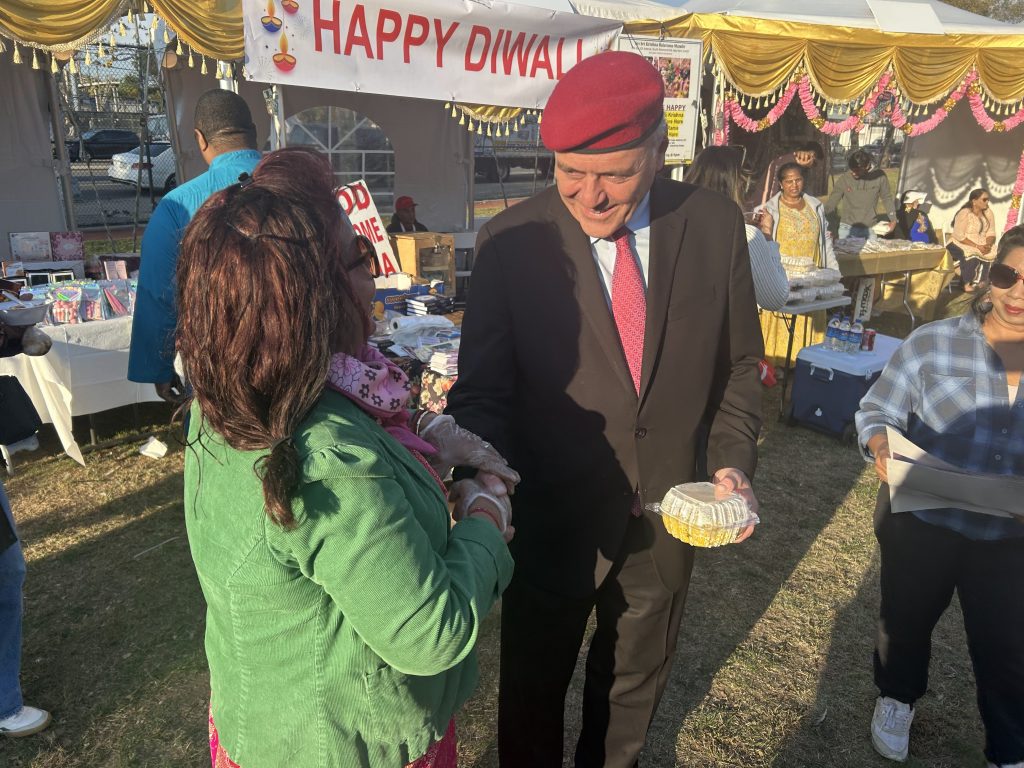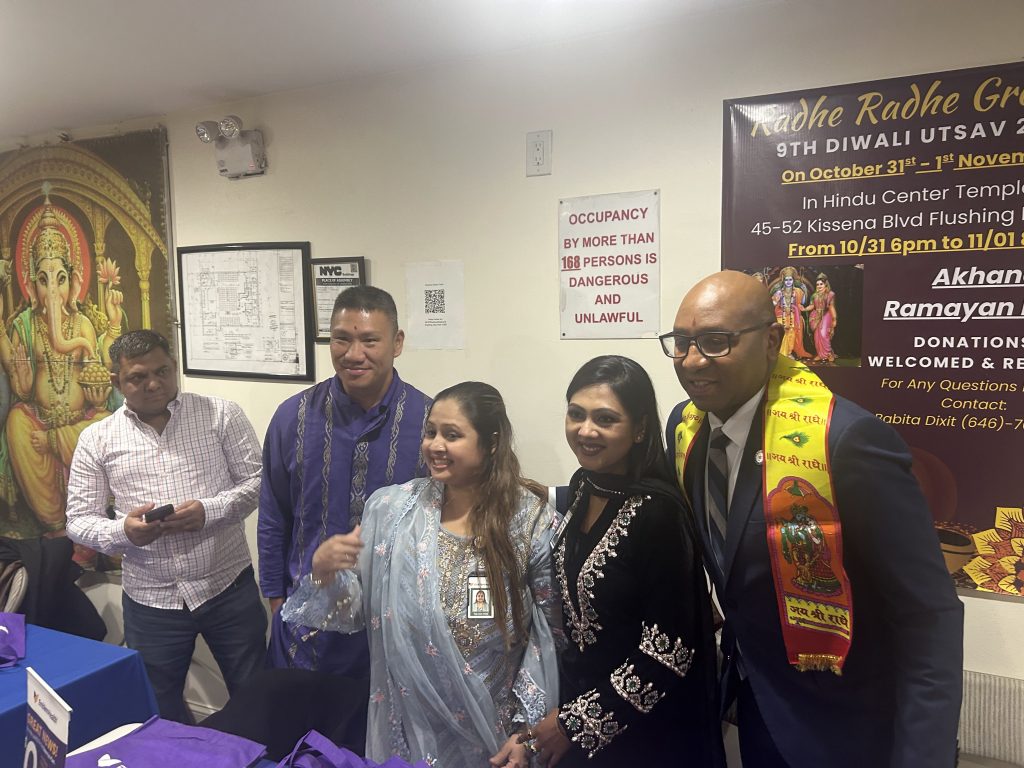
Christian Spencer
Diwali no longer belongs only to the temple. It has become part of the city’s official calendar, drawing attention from politicians, corporate sponsors, and Queens, the borough with the largest Hindu population, which serves as the center of the celebrations.
The week leading to the October 20 celebration saw the glow of Diwali lights spread across Queens as temples, parks, and streets filled with prayers, parades, and performances marking the Festival of Lights, a holiday now recognized as a New York City public school holiday.
Political campaigns have increasingly leveraged the festival, turning religious observance into a stage for civic engagement. Queens has emerged as the focal point for both worship and political attention, combining tradition with contemporary influence in a borough that has become a crucible for cultural visibility.
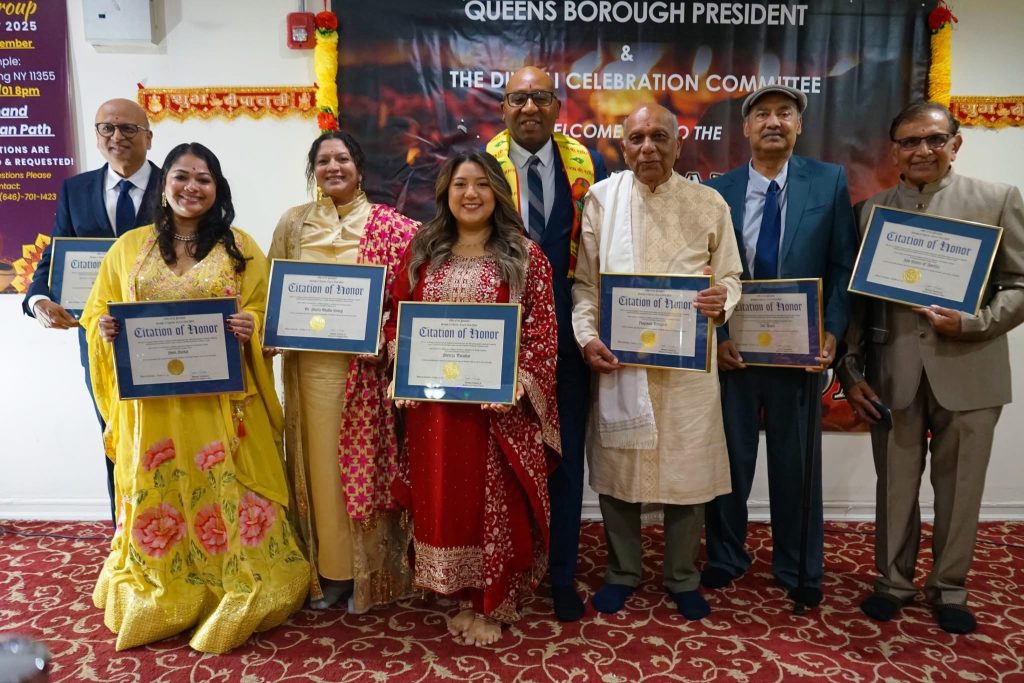
At the Hindu Center in Flushing on October 16, Borough President Donovan Richards Jr. led a ceremony honoring local South Asian leaders for their service to the community.
Richards, a fixture in Queens politics known for cultivating connections with immigrant communities, acknowledged the borough’s evolving demographics.
“We as the Borough of Queens are built on a foundation of outstanding people working together toward a wonderful community based on hard work and mutual respect,” he said.
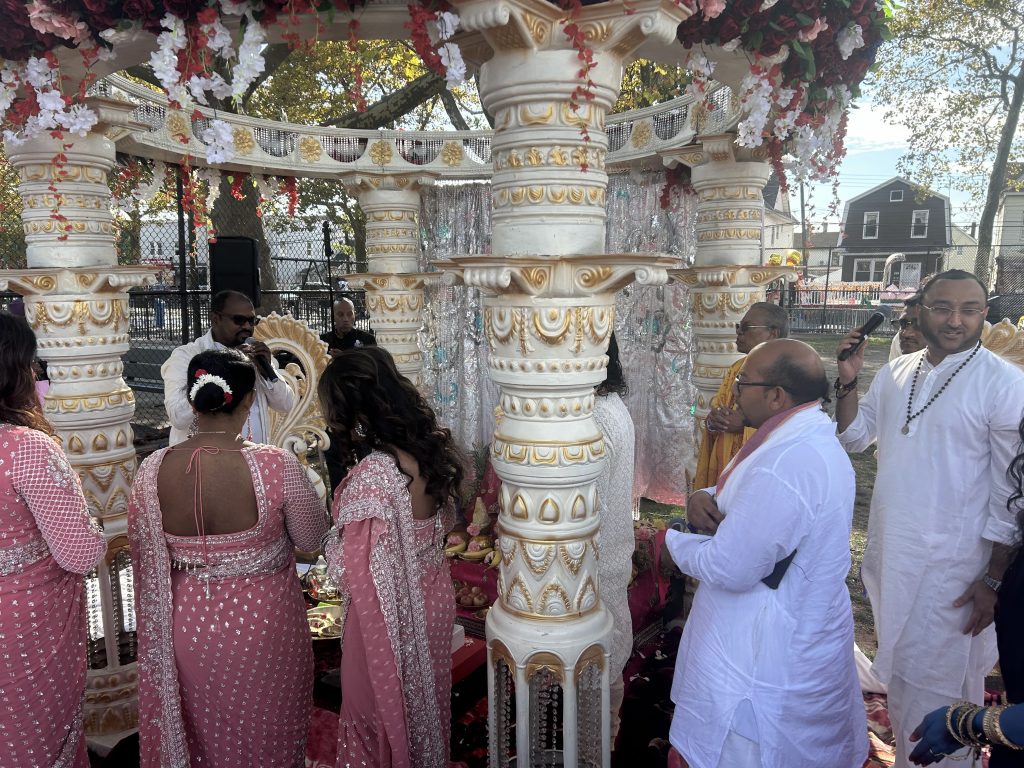
One honoree, Rasik S. Sanghvi, has spent decades leading the Jain Center of America, a religious and cultural hub in Manhattan. “We are so proud that the borough president cares about every community, every religion, and everyone,” Sanghvi said, noting the significance of official recognition for minority communities.
Shreeya Tuladhar, executive director of the Minority Empowerment Network, works to connect historically marginalized groups to local government initiatives. She said the presence of elected officials at the festival carries weight for civic engagement.
“This Diwali was so special because it’s the first time they’re doing it in a Hindu temple, and that means a lot to our South Asian community. Having a Borough President who goes out of his way to show up for minority communities is truly remarkable. Representation matters — it makes us feel seen and heard, and it encourages civic participation across all communities.”
Two days later, in South Richmond Hill on October 18, the Diwali Motorcade returned after a five-year hiatus. The procession of floats, music, and cultural performances along Liberty Avenue drew families from across New York and the diaspora, many attending for the first time. The motorcade’s revival illustrated the aplomb with which the community has reclaimed its space in the city’s cultural calendar.
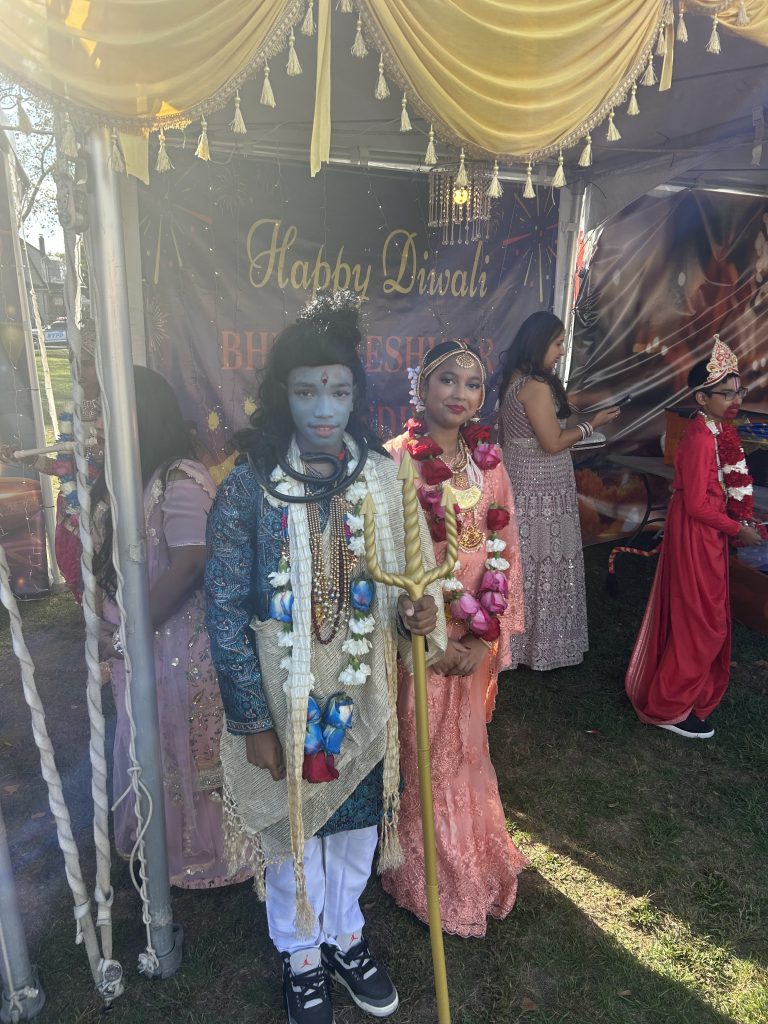
Pandit Ravi Latcha, a Hindu priest and spiritual leader in the borough, opened the festivities with rituals that connected participants to the festival’s deeper meaning.
“This event celebrates the Divine Mother, Lakshmi Ma, who is the source of happiness and the remover of all darkness, ignorance, hatred, jealousy, and passion. This year is especially meaningful because New York now recognizes Diwali as a public holiday. We have been working for this for a long time, and it is finally here,” he said.
Stephanie Karamchen, a longtime organizer with the Divya Jyoti Association, has helped make the Little Guyana event at Smokey Park inclusive for all attendees.
“Last year, we didn’t have the Diwali Motorcade. This year we’re bringing it back, and it’s amazing to see everyone come together from Long Island, the Bronx, Queens, Guyana, and beyond,” she said.
Savita Singh, a singer from Trinidad and Tobago, energized the crowd and acknowledged volunteers who made the comeback possible.
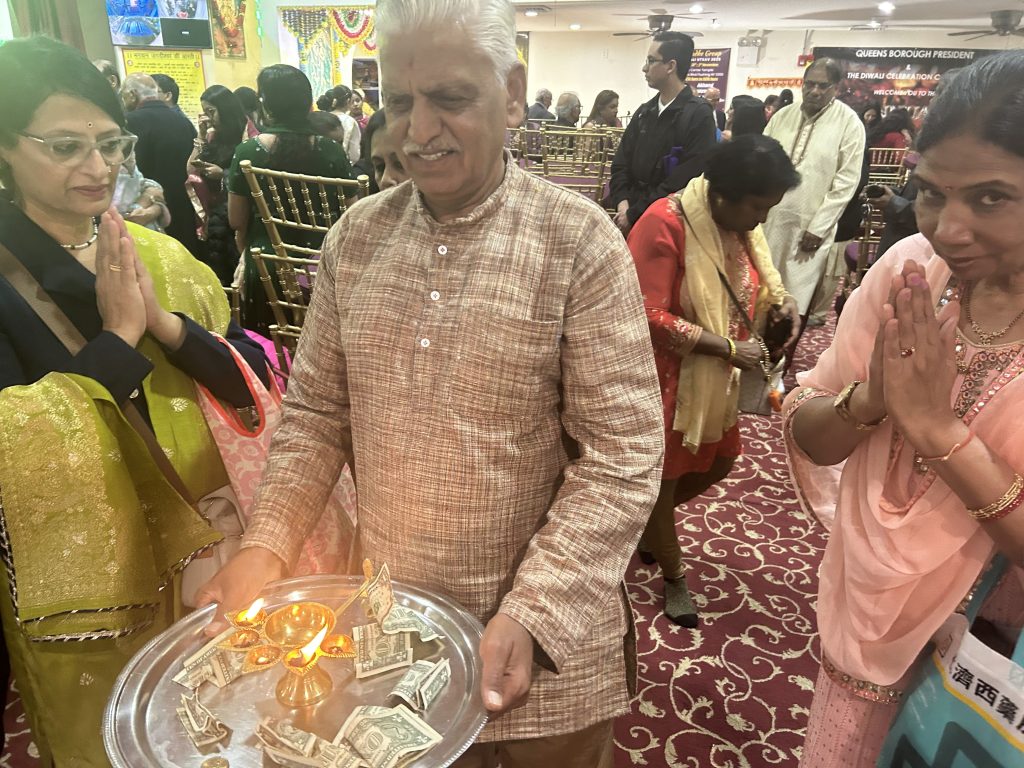
“Thank you so much! Richmond Hill, give yourselves a big round of applause! … Now, after five years, we are here bringing the Diwali Motorcade back! We love that we are at Smokey Park … so I want everybody to have an amazing time … Thank you, and Happy Diwali!” she said.
Leon Jameson Souseran, a local resident and community advocate, described the motorcade as a salient sign of the community’s resilience.
“It’s bigger than I anticipated. After COVID, a lot of celebrations died down, so it’s great to see the resurgence of this most auspicious Festival of Lights here in the Little Guyana community. Tonight’s motorcade is returning in grand style along Liberty Avenue. Celebrations like this show unity, sharing cultures, food, and music, and they bring people together at a time when there’s so much acrimony,” he said.
Olivia Valois, a queer Hindu and community advocate with the Caribbean Equality Project, pointed to Diwali’s growing inclusivity. “Diwali has become bigger and bigger as the years go by. More inclusivity is being attached to Diwali and other holidays rooted in Hindu culture. Spread love over light — Diwali is about good over evil and love over hatred,” she said.
Mayoral candidate Curtis Sliwa addressed the crowd, connecting the festival to his broader platform on public safety.
“Diwali is a ceremony that brings light to darkness, where good triumphs over evil. I’ve dedicated my life to protecting people and animals, and that is what I will bring to City Hall. I will be here every year for Diwali and Pagwa,” he said.
His campaign aide, Rusat Ramgopal, reinforced Sliwa’s consistent presence in the borough.
“Curtis Sliwa always remembers this community. He has participated in Holi, Pagwa, and now Diwali. Other politicians may conveniently remember the community, but he consistently shows up,” Ramgopal said.
In the midst of political and social divisions, the visibility of Diwali has become a catalyst for civic engagement.
